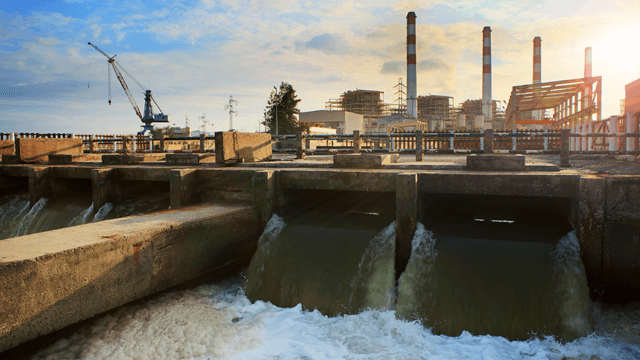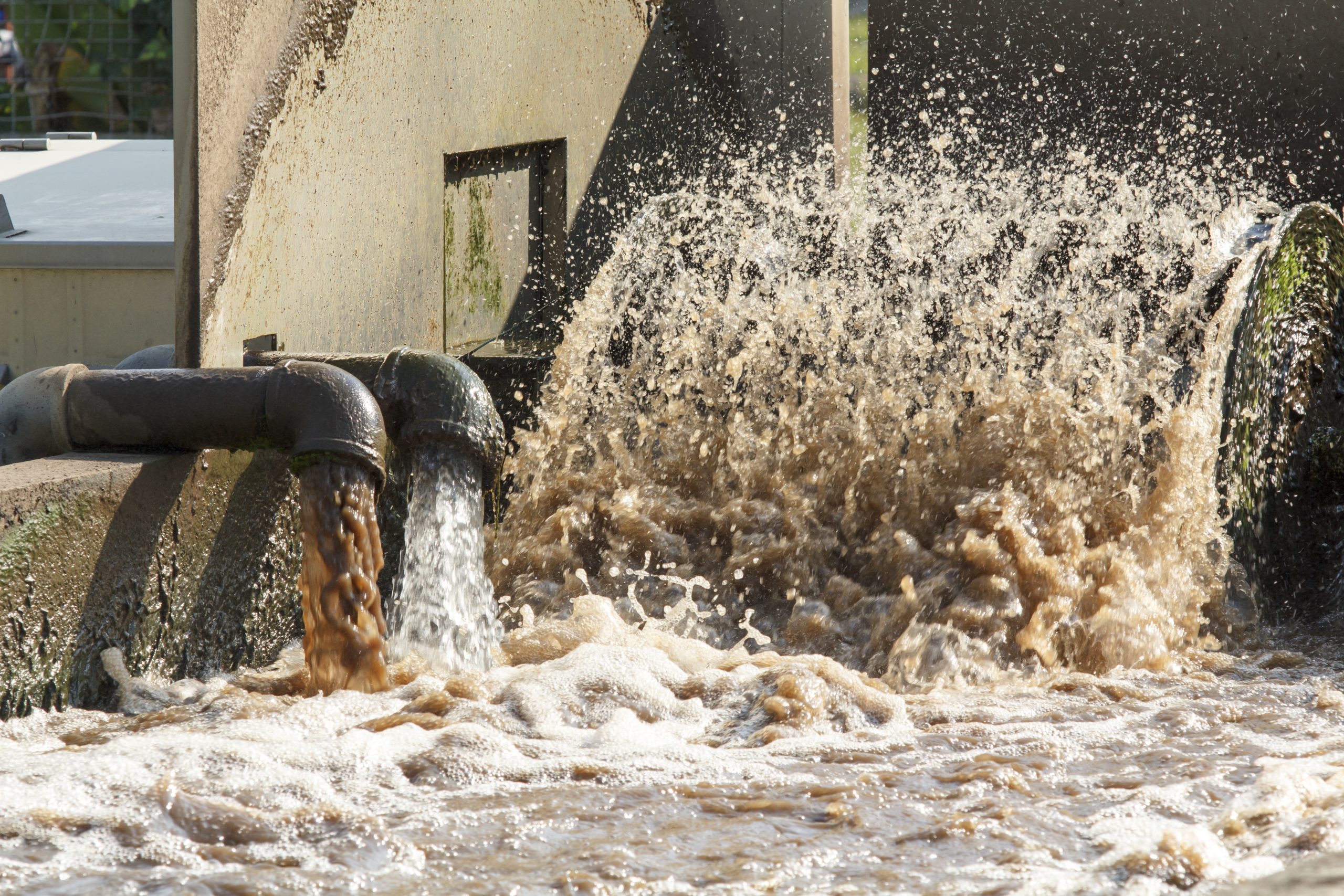Industrial Waste Water Treatment-- Comprehensive Systems for Wastewater Disposal
Industrial Waste Water Treatment-- Comprehensive Systems for Wastewater Disposal
Blog Article
Obstacles and Solutions in Industrial Waste Water Treatment
The treatment of commercial wastewater offers a multifaceted range of obstacles, varying from stringent regulative compliance to the details of price management and technological restrictions. The irregularity in waste make-up better complicates the effectiveness of conventional therapy techniques, usually resulting in escalated operational expenditures. Nevertheless, emerging services such as sophisticated oxidation processes and cutting-edge funding versions show assurance in attending to these concerns. As industries come to grips with the demand for sustainable techniques, the inquiry remains: what approaches will eventually lead to a balance between conformity, cost-efficiency, and ecological duty?
Regulatory Compliance Obstacles
Exactly how can industrial centers navigate the facility landscape of regulative compliance in wastewater treatment? The regulative framework regulating wastewater monitoring is diverse, typically differing by territory and kind of market.
To successfully handle these compliance obstacles, centers need to carry out robust surveillance and reporting systems that ensure real-time information collection and analysis. Normal audits and danger assessments can recognize potential conformity gaps, permitting positive modifications in treatment procedures. Employee training programs concentrating on regulative knowledge and ideal techniques are vital to cultivate a society of compliance within the organization.
Additionally, engaging with regulatory firms can give important insights and make clear unclear laws. Facilities may also take advantage of speaking with environmental experts who concentrate on wastewater therapy conformity, ensuring that they remain informed of progressing regulations. By embracing these strategies, industrial facilities can not only fulfill conformity requirements however likewise boost their operational effectiveness and ecological stewardship.
Expense and Financial Obstacles
Browsing governing conformity in wastewater therapy usually provides considerable financial challenges for industrial facilities. The expenses related to executing essential therapy innovations, keeping conformity with rigorous guidelines, and handling operational expenditures can be daunting. Numerous companies face high preliminary capital expenditures for the building and construction or upgrading of wastewater treatment plants, which might stress budgets, particularly for medium-sized and small business.
Furthermore, ongoing functional costs, consisting of chemical, upkeep, and labor inputs, add to the economic burden. The changability of rising and fall power costs and the potential requirement for extra investments to satisfy advancing laws aggravate these economic stress. In a lot of cases, the lack of monetary motivations or support from government bodies makes it even much more tough for businesses to validate financial investments in innovative treatment systems.
Furthermore, the economic stability of wastewater treatment options is often questioned, especially for industries with limited earnings margins. It is critical for commercial facilities to check out economical strategies, such as adopting cutting-edge financing choices, involving in collaborations, and leveraging arising technologies that can help reduce these financial obstacles while ensuring conformity with ecological requirements.

Technical Limitations
Countless technological limitations hinder the performance of commercial wastewater therapy procedures. One significant obstacle is the inadequacy of existing treatment technologies to attend to complicated contaminants.
Furthermore, the scalability of therapy technologies poses an obstacle. While some sophisticated approaches, like membrane layer purification or advanced oxidation, show assurance in controlled atmospheres, their execution on a larger range can be much too pricey and practically difficult. Maintenance and operational complexities even more make complex the adoption of these systems, particularly for smaller industries with limited technological proficiency.
The assimilation of real-time monitoring modern technologies likewise continues to be insufficient in many therapy facilities. Without reliable tracking systems, drivers can not adequately examine treatment performance or identify possible failings, resulting in inconsistent effluent quality. Subsequently, resolving these technological restrictions with r & d, alongside financial investment in cutting-edge services, is important for boosting the efficiency of industrial wastewater therapy and making sure governing compliance. Industrial Waste Water Treatment.
Irregularity in Waste Composition
In the world of commercial wastewater treatment, the More Info variability in waste structure presents a powerful challenge. Industries generate wastewater with diverse features, affected by factors such as production processes, raw materials, and operational practices. This heterogeneity makes complex the treatment process, as traditional systems often struggle to effectively attend to the wide variety of toxins present.
For example, wastewater from food handling may have high degrees of raw material, while effluents from chemical production could right here consist of hefty steels and dangerous substances. This variance demands adaptable treatment techniques to make sure compliance with ecological guidelines and secure public wellness. In addition, fluctuations in waste structure can take place gradually, affected by adjustments in production schedules, maintenance tasks, or the intro of brand-new products.

Ingenious Treatment Solutions
Innovative treatment services are essential for dealing with the complexities of industrial you could try these out wastewater management. Traditional approaches often fall short in properly getting rid of a wide variety of impurities, especially in facilities with diverse effluent streams. Current advancements concentrate on integrating sophisticated innovations to enhance therapy efficiency and sustainability.
One appealing technique is the use of advanced oxidation procedures (AOPs), which take advantage of effective oxidants to break down natural toxins. AOPs, consisting of photocatalysis and ozonation, can dramatically decrease harmful compounds and boost effluent top quality. In addition, membrane layer bioreactor (MBR) modern technology has acquired traction, combining biological treatment with membrane filtration, resulting in high-grade effluent and reduced impact.
Another innovative solution is the application of source healing systems. Techniques like anaerobic digestion not just deal with wastewater yet also create biogas, which can be taken advantage of as a sustainable power resource. Additionally, the fostering of fabricated knowledge and machine knowing designs can maximize therapy processes by anticipating variants in wastewater make-up, consequently improving operational performance.
These ingenious remedies not just address governing compliance yet also promote ecological sustainability, leading the way for a more effective and resistant commercial ecosystem.
Conclusion
In verdict, resolving the challenges of industrial wastewater therapy needs a multifaceted method that integrates regulative compliance, price management, and technological improvements. A commitment to constant improvement in therapy techniques will ultimately contribute to the effective administration of commercial wastewater and environmental defense.
The therapy of industrial wastewater presents a multifaceted range of difficulties, ranging from rigorous regulative compliance to the complexities of expense administration and technological restrictions. Industrial Waste Water Treatment.Navigating governing conformity in wastewater therapy commonly provides substantial economic obstacles for industrial facilities. Resolving these technical restrictions through study and development, together with investment in innovative remedies, is critical for boosting the efficacy of industrial wastewater therapy and making certain regulative compliance
Wastewater therapy facilities have to spend in robust surveillance systems and adaptable treatment technologies capable of suiting varying influent characteristics.In verdict, attending to the challenges of commercial wastewater treatment requires a complex method that incorporates regulative compliance, expense management, and technical developments.
Report this page